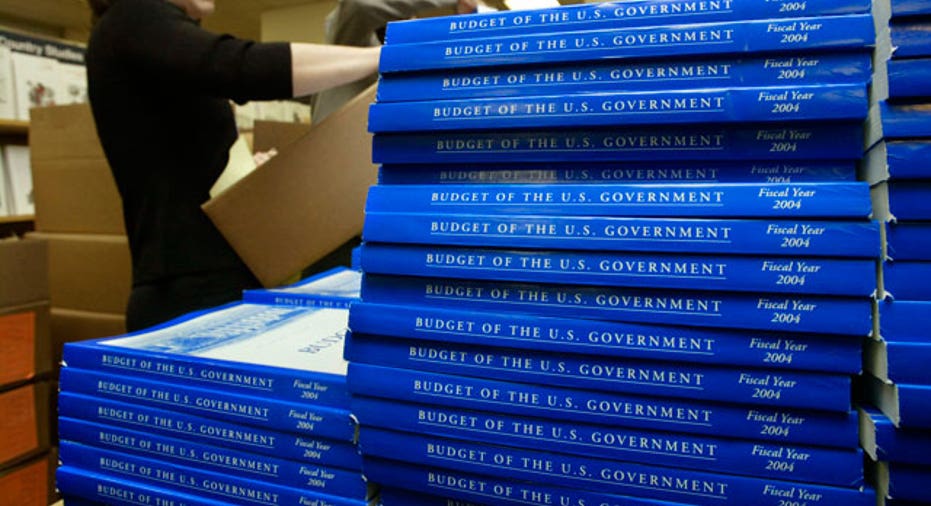Disaster-Proof Your Budget

Before the Great Recession, when unemployment was at record lows and home equity levels and stock markets were at record highs, emergency funds were often put on the financial back burner. For many households, six weeks' to three months' worth of living expenses seemed adequate.
But the downturn showed how shortsighted that view could be. Today, the job market is recovering very slowly. And some 6 million Americans are considered long-term unemployed -- meaning no work for six months or more -- while another 2.4 million are considered marginally attached to the labor force, according to the Bureau of Labor Statistics. Many families likely went through their rainy day fund long before their financial clouds cleared.
A dry emergency fund can lead to excessive borrowing, family stress and possibly the liquidation of long-term investments like those put away for retirement or college costs. So consumers like Delbe Meelhuysen, a Texas physician with aging parents and three kids in college, are swearing to be better prepared next time. "Yes, the economy has changed my mind," says Meelhuysen. "Frugal is in."
The truth is that the guidelines about emergency funds never changed, says David Jones, president of the Association of Independent Consumer Credit Counseling Agencies. It's just that in the flush of an unprecedented economic boom, they were easy to ignore.
"Conventional wisdom has always been to hold six months' equivalent of take-home pay in savings," says Jones. "That is still the advice we give."
At the same time, replenishing an emergency fund at the expense of other long-term needs like retirement savings or paying off debt may be counterproductive. And the reality is that each family is different, and families hit hard by the downturn may take much longer to reach their goals, says Liz Weston, author of "The 10 Commandments of Money." "My problem with telling people to save 'umpty-ump' months' of cash is that it can take years to do so," she says, adding: "and that's assuming no financial setbacks in the meantime."
The first step toward building an emergency fund isn't actually putting money in a savings account. Rather, it's doing your homework. Prepare a family budget and figure out how much you can realistically save.
Then, prioritize where you'll direct your savings, says Jones. "The first priority must be to pay down credit card debt because of the high interest rates involved," he says.
Next, reignite your retirement planning. "Once the balances are under control, the second priority should be to restart 401(k) contributions," he says.
Then start thinking about what you can budget for a savings account -- that's your emergency fund.
It may sound overwhelming, which is why most experts counsel that it's best to start small. An initial goal might be to sock away enough to live one month, bare-bones survivor-style, if your income stopped tomorrow. Call it a mini-emergency fund.
Say your rent is $800, and you and your spouse need at least $350 for groceries. Do what it takes to get $1,150 in a savings or money market account. Consider it untouchable.
Then, build from that base. For instance, they won't turn off the power after 30 days, so it doesn't need to be part of your survivor account. But saving to keep utilities current if you're laid off is a smart move. And of course, you're going to need gas money, since you'll be pounding the pavement looking for work.
Once your mini-fund is in place, start to expand the amount of time you want it to cover.
Though it might be tempting to use it for potentially lucrative investments like stocks, don't do it, says Jones. You're most likely to have a financial emergency during an economic slump -- which means a stock-based emergency fund may plunge in value just when you need it the most.
"Obviously, savings accounts these days don't pay much interest," Jones says. "However, that is exactly where these funds should be kept. No. 1, they should be readily accessible. And No. 2, they should not be at risk of market fluctuations."
The good news, if you can call it that, is that it had been 80 years since a downturn as bad as the recent one. The bad news is, that's no guarantee it will be eight decades before the next one. And of course, anyone can be hit with a job loss or financial setback no matter how the economy is doing.
But if you can't predict the future, you can still prepare for it, says Jones.
"The universal advice is that everyone should have an emergency fund," he says. "The other piece of advice for everyone is, 'Don't tap this fund for anything except a true emergency.'"



















